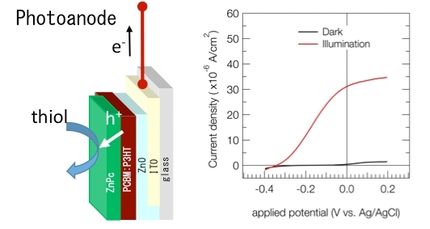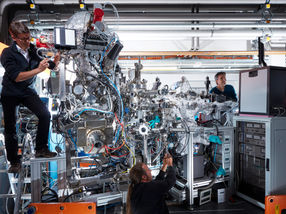Solar-powered electrochemistry reduces reagent waste in synthetic organic reactions
Advertisement
Scientists in the United States have combined electrochemistry with synthetic organic chemistry to perform chemical oxidations that consume only sunlight and produce only hydrogen as a reduction product to reduce reagent waste.
The researchers connected a photovoltaic cell to the reaction flask, which, on exposure to sunlight, passes a constant stream of electricity through the system. The electricity enables a chemical oxidant to serve as a mediator for the reaction that is then regenerated at the anode.
The team tested seven different reactions using the photovoltaic system, including an asymmetric oxidation reaction, and achieved yields that were almost the same as traditional methods.
Kevin Moeller, who led the research at Washington University in St Louis, said: “Too few organic chemists utilise synthetic chemistry as synthetic tool in spite of its potential advantages. We wanted to show just how easy it was to carry out reactions in this manner.”
Most read news
Other news from the department science

Get the chemical industry in your inbox
By submitting this form you agree that LUMITOS AG will send you the newsletter(s) selected above by email. Your data will not be passed on to third parties. Your data will be stored and processed in accordance with our data protection regulations. LUMITOS may contact you by email for the purpose of advertising or market and opinion surveys. You can revoke your consent at any time without giving reasons to LUMITOS AG, Ernst-Augustin-Str. 2, 12489 Berlin, Germany or by e-mail at revoke@lumitos.com with effect for the future. In addition, each email contains a link to unsubscribe from the corresponding newsletter.
































































